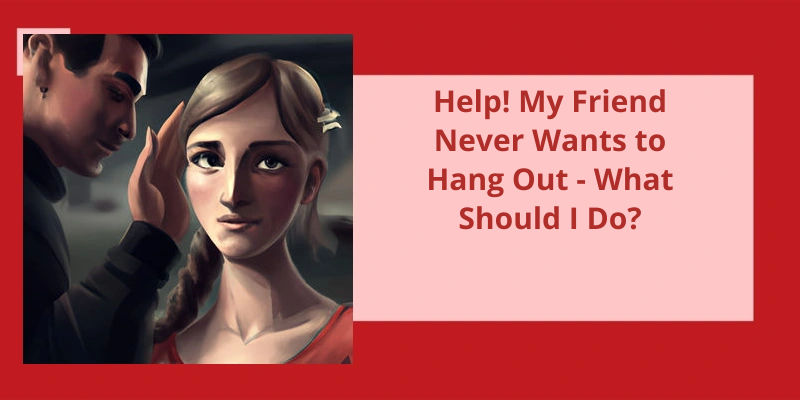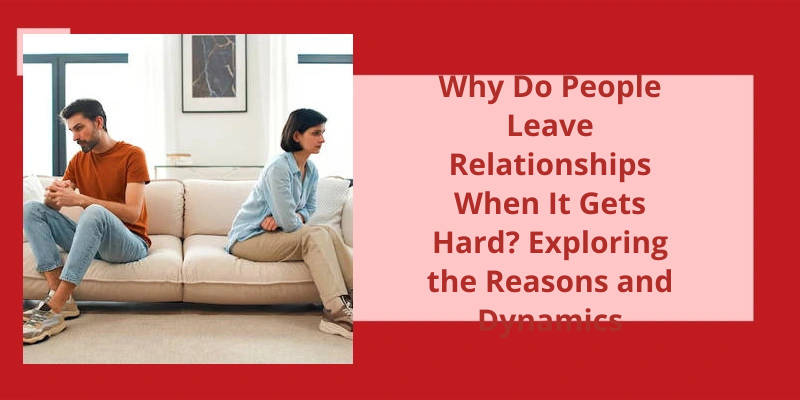Friendship is a beautiful bond that often transcends the boundaries of familial ties, offering a unique sense of support, companionship, and understanding. However, as the deep connection between friends grows, boundaries can sometimes become blurred, and individuals may find themselves becoming overly attached to their friends. While attachment is a natural aspect of close relationships, excessive attachment can have negative consequences on friendships and personal well-being. This article aims to explore the impact of being too attached to a friend and provide practical ways to navigate this complex emotional landscape.
Why Do I Get Overly Attached to One Person?
Getting overly attached to one person can be attributed to various factors, and one of them is having an anxious attachment style. Those with an anxious attachment style tend to cling to others out of fear of being abandoned. This fear stems from deep-seated insecurities and a lack of confidence in oneself. Consequently, when they find someone who shows them attention and affection, they become overly attached in an attempt to alleviate their fears of abandonment.
In addition to having an anxious attachment style, low self-esteem can also contribute to getting attached easily. When someone has low self-esteem, they may seek validation and approval from others to feel worthy and loved. This need for external validation drives them to jump into relationships prematurely, as they believe that the love and attention they receive from their partner validates their self-worth. This validation becomes addictive, and as a result, they become overly attached to that person.
Furthermore, past experiences, such as a history of abandonment or trauma, can also contribute to becoming overly attached to one person. These experiences can create internal wounds and insecurities, causing individuals to seek constant reassurance and closeness in their relationships. They may cling to their partner as a way to feel secure and protected, attempting to fill the void left by previous emotional pain.
Navigating this excessive attachment can be challenging, but it’s essential to prioritize self-awareness and self-care. Recognizing the root causes and triggers of attachment is the first step towards addressing and managing these patterns. Engaging in therapy or seeking professional help can provide valuable insights and strategies to overcome these attachment issues.
Additionally, developing a healthy sense of self-worth is crucial. Building self-esteem through self-reflection, self-compassion, and pursuing personal goals and interests can help reduce the dependency on others for validation. It’s important to remember that self-love and self-acceptance should form the foundation of any healthy relationship, rather than relying solely on external sources of validation.
Setting boundaries is another essential aspect of navigating attachment issues. Learning how to communicate your needs, desires, and boundaries to your friend or partner can help establish a healthy balance in the relationship. Having open and honest conversations about your attachment style and fears can build trust and understanding between both parties. It’s essential to create a space where both individuals feel safe and secure while also respecting each others independence and individuality.
Ultimately, it’s crucial to remember that attachment patterns can be changed, and healthy relationships can be cultivated. By addressing the underlying causes of excessive attachment, building self-esteem, and establishing healthy boundaries, individuals can develop more secure and fulfilling connections with others. It may take time and effort, but with self-reflection and support, it’s possible to navigate the impact of being overly attached to a friend or partner and create healthier patterns of attachment.
In addition, it’s important to evaluate the level of dependency you’ve on your friend and whether it’s interfering with your ability to maintain other relationships or engage in healthy self-care practices. By assessing the dynamics of your emotional attachment and ensuring a balance of giving and receiving support, you can gain a clearer understanding of your relationship and it’s impact on your overall well-being.
Am I Too Emotionally Attached to My Friend?
Emotional attachments are a normal aspect of human relationships. Friends and loved ones provide emotional support, which can have a positive impact on physical and mental health. However, asking yourself if you offer emotional support as well as receive it can help you determine whether your attachments are mostly healthy or if you’re too emotionally attached to your friend.
One way to explore this is by examining your reactions and behavior when your friend isn’t available. Are you constantly seeking their attention, feeling anxious or upset when they’re busy with other commitments? This may indicate a level of dependency that could be unhealthy. Healthy attachment allows for space and independence.
Another aspect to consider is whether your emotional attachment is interfering with other areas of your life. Are you neglecting your own needs, goals, or other relationships because you’re too focused on your friend? If so, it may be a sign that your attachment is becoming too consuming.
It’s also helpful to reflect on the quality of your friendship. Are you both able to express your needs, boundaries, and emotions openly and honestly? Healthy friendships are built on mutual respect, trust, and communication. If you find yourself constantly sacrificing your own needs or her needs are disregarded, it may be a sign that the attachment is becoming unhealthy.
Additionally, it can be helpful to assess your self-esteem and self-worth. Are you relying on your friend to validate your feelings or provide a sense of worthiness? While it’s natural to seek support and validation from others, it’s important to also develop a strong sense of self-worth independent of your relationships.
Finally, exploring your own coping mechanisms and self-soothing skills is essential. It’s important to have a balance between seeking support from others and being able to manage your own emotions. Are you able to cope with difficult situations on your own, or do you always rely on your friend to provide comfort? Developing healthy coping strategies can help you navigate your emotions in a more balanced way.
It’s not uncommon to question our behavior when it comes to friendships, and wondering if we might be crossing the line into being too clingy is a valid concern. Nobody wants to sabotage a valuable connection by suffocating it with constant neediness. Recognizing the signs of clinginess and understanding the impact it can have on a friendship is essential for maintaining healthy relationships.
Am I Being Too Clingy to My Friend?
Determining whether or not you’re being too clingy to your friend can be a complex and sensitive matter. It’s important to understand that being clingy means having a habit of excessive calling, wanting constant companionship, feeling jealousy towards their interactions with others, and relying on them for constant emotional support. Such behavior can undoubtedly strain and harm a genuine friendship.
Maintaining a healthy friendship requires balance and respect for personal space. It’s essential for both individuals to have their own lives, interests, and other relationships outside of the friendship. Constantly seeking their presence or attention may hinder their ability to have these individual experiences and can generate feelings of suffocation or resentment.
It’s important to recognize the signs of clinginess in order to address and navigate them effectively. If you find yourself constantly seeking their attention, feeling jealous when they spend time with others, or relying on them for emotional reassurance, it may be time to reflect on your behavior.
To navigate these feelings and behaviors, it’s essential to foster open and honest communication with your friend. Expressing your concerns and discussing boundaries can provide clarity and understanding for both parties. Remember that genuine friendships thrive on mutual respect and understanding, so it’s crucial to listen to their needs and concerns as well.
In addition, it can be beneficial to cultivate your own interests and hobbies outside of the friendship. By diversifying your social circle and focusing on personal growth, you can alleviate the pressure or dependence on a single friend.
Ultimately, it’s important to remember that true friendships are built on a foundation of trust, understanding, and mutual support. By being aware of your own behavior and cultivating a healthy sense of independence, you can strengthen your friendship and ensure that it remains fulfilling and meaningful for both you and your friend.
Recognizing and Addressing Codependency in Friendships
- Evaluating the dynamics of your friendships
- Identifying signs of codependency
- Understanding the root causes of codependent behavior
- Challenging enabling behaviors
- Establishing healthy boundaries
- Improving self-esteem and self-worth
- Seeking professional help or support groups
- Maintaining open and honest communication
- Focusing on self-care and self-development
Conclusion
In conclusion, being overly attached to a friend can have both positive and negative impacts on our lives. On one hand, this deep connection can bring comfort, support, and a sense of belonging. However, it’s crucial to maintain a healthy balance and ensure that this attachment doesn’t consume our own identities or hinder personal growth. By setting boundaries, practicing self-care, and nurturing other relationships, we can navigate this attachment in a way that’s mutually beneficial and conducive to our overall well-being. It’s important to remember that friendships can change and evolve, and it’s essential to embrace these changes while cherishing the bond we share with our friends.






